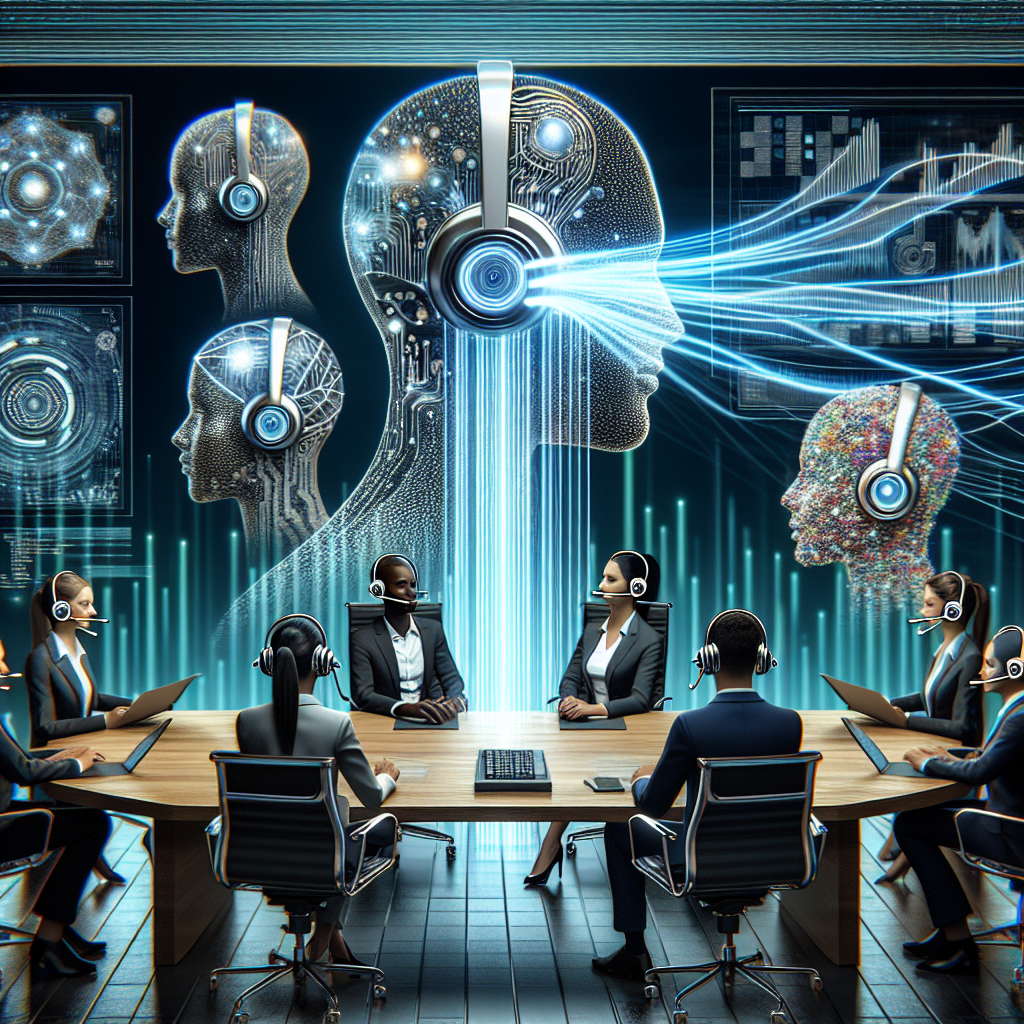In recent years, the rise of artificial intelligence (AI) has had a profound impact on various industries, including customer service. AI has the potential to revolutionize how companies train and develop their customer service employees, leading to improved efficiency, customer satisfaction, and overall business success. In this article, we will explore the impact of AI on customer service training and development, as well as address some frequently asked questions on this topic.
Impact of AI on Customer Service Training and Development
1. Personalized Training: AI-powered systems can analyze employee performance data and provide personalized training recommendations based on individual strengths and weaknesses. This allows companies to tailor training programs to meet the specific needs of each employee, leading to more effective skill development and improved performance.
2. Real-time Feedback: AI can provide real-time feedback to customer service agents during interactions with customers. By analyzing language, tone, and other factors, AI can offer suggestions for improving communication skills and resolving customer issues more effectively. This immediate feedback can help agents learn and adapt quickly, leading to better customer experiences.
3. Virtual Reality Training: AI technology can be integrated with virtual reality (VR) simulations to create immersive training experiences for customer service employees. VR training allows agents to practice handling difficult customer interactions in a safe and controlled environment, helping them build confidence and improve their problem-solving skills.
4. Chatbots for Training: AI-powered chatbots can be used to simulate customer interactions and provide training scenarios for customer service agents. By interacting with chatbots, agents can practice responding to common customer inquiries, handling objections, and resolving issues in a simulated environment. This hands-on training can help agents build their skills and confidence before interacting with real customers.
5. Predictive Analytics: AI can analyze customer data and predict future trends in customer behavior, allowing companies to anticipate customer needs and proactively train their customer service teams to address upcoming challenges. By leveraging predictive analytics, companies can stay ahead of the curve and ensure that their customer service employees are well-prepared to meet evolving customer demands.
6. Automation of Routine Tasks: AI technology can automate routine customer service tasks, such as responding to frequently asked questions, processing orders, and scheduling appointments. By offloading these repetitive tasks to AI-powered systems, customer service agents can focus on more complex and high-value interactions with customers, leading to increased productivity and job satisfaction.
7. Continuous Learning: AI can facilitate continuous learning for customer service employees by providing ongoing training modules and resources to help them stay up-to-date on industry trends, product updates, and customer service best practices. This continuous learning approach ensures that agents are always improving their skills and knowledge, leading to better customer experiences and increased customer loyalty.
Frequently Asked Questions (FAQs)
Q: Will AI replace human customer service agents?
A: While AI technology can automate certain customer service tasks, such as responding to FAQs and processing orders, human agents are still essential for handling complex inquiries, providing personalized support, and building relationships with customers. AI can complement the work of human agents by streamlining routine tasks and providing support for training and development.
Q: How can companies ensure that AI-powered training programs are effective?
A: To ensure the effectiveness of AI-powered training programs, companies should regularly evaluate employee performance data, gather feedback from agents, and make adjustments to training content based on insights from AI analytics. It is also important to provide ongoing support and resources for employees to enhance their skills and knowledge continuously.
Q: How can AI technology help companies improve customer satisfaction?
A: AI technology can help companies improve customer satisfaction by providing personalized training programs for customer service agents, enabling real-time feedback during customer interactions, and automating routine tasks to free up agents for more complex inquiries. By empowering agents with AI tools and resources, companies can enhance the overall customer experience and drive customer loyalty.
Q: What are the potential risks of using AI in customer service training?
A: Some potential risks of using AI in customer service training include data privacy concerns, bias in AI algorithms, and over-reliance on technology at the expense of human judgment. Companies should address these risks by implementing robust data security measures, ensuring transparency and accountability in AI decision-making, and providing ongoing training and support for employees to develop critical thinking skills.
In conclusion, AI technology has the potential to transform customer service training and development by providing personalized training experiences, real-time feedback, virtual reality simulations, and predictive analytics. By leveraging AI-powered tools and resources, companies can empower their customer service agents to deliver exceptional customer experiences, improve performance, and drive business success. By addressing common FAQs and concerns about AI in customer service training, companies can ensure a smooth transition to AI-powered training programs while maximizing the benefits of this innovative technology.

